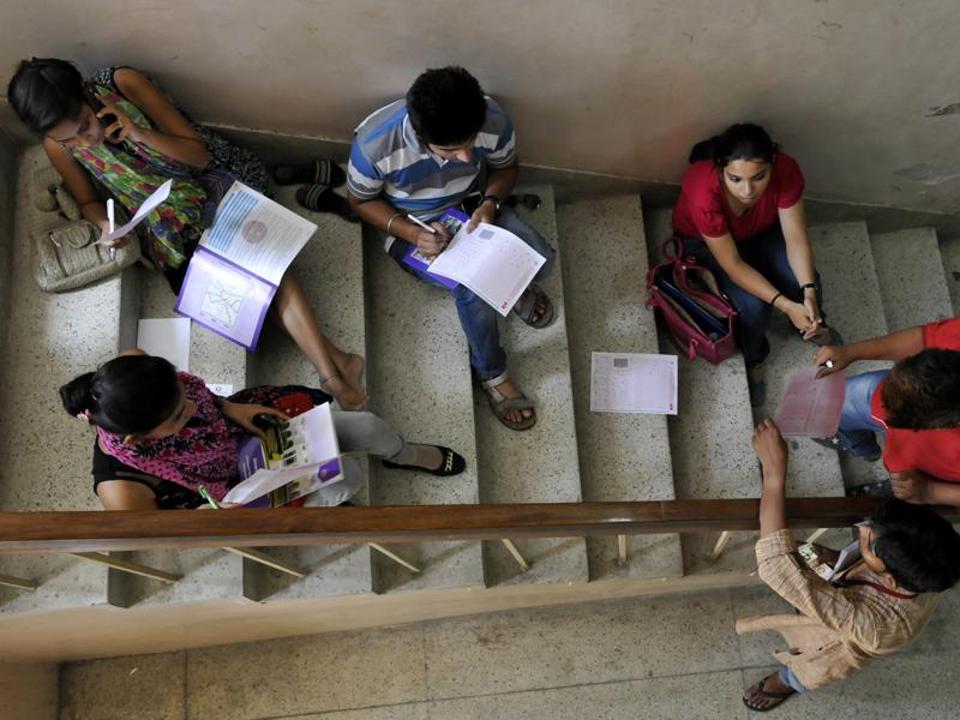

Delhi University offers unique courses at the Cluster Innovation Centre (CIC), with a keen focus on innovation.
The courses are not just aimed at preparing students for a fast-changing innovative world but they also use unique concepts such as ‘meta college’ and ‘meta university’ to allow them to experience multiple colleges and universities during the course.
The CIC offers two undergraduate programmes, BTech in information technology and mathematical innovation and BA (Hons) in humanities and social sciences, and a postgraduate course, MSc in mathematical education.
BTech in information technology and mathematical innovation
This four-year undergraduate degree course, which has been on offer in DU since 2012, is open to all who have studied mathematics and have secured a best four score of at least 60%.
The course looks to provide students with practical knowledge, in addition to theoretical prowess, when it comes to innovation and technology. The curriculum is evaluated on the basis of both projects that students are expected to complete and theoretical exams.
“The course was designed keeping innovation in mind. DU is the only Indian university that provides a course of this kind,” said Jogeswar Purohit, an assistant professor for the course.
Admission to the 40 seats for this course will be on the basis of an entrance test expected to be conducted early next month. The entrance exam will be based on mathematics and science subjects.
Interested students can apply to the course on the DU online admission portal, under the entrance-based undergraduate programs application.
However, the CIC does not have a placement cell and does not invite companies and others for recruitment. “Almost all of our students have been placed but we do not have a placement cell,” he said.
“We encourage students to link up and think of their own start-ups. In fact, after they complete their degree, a selected few students are allowed to incubate their projects up to one year at the centre. Students even get funding of up to Rs two lakh from ministry of micro, small and medium enterprises,” said Purohit, while explaining how the course nurtures an entrepreneurial spirit.
BA (Hons) in humanities and social sciences
This three-year undergraduate programme is one of its kind, as it is a ‘meta college’ programme. “Students will be able to choose classes from different DU colleges and design their own degree,” explained Geetanjali Kala, an assistant professor at DU and the woman behind the course.
Students can tailor their degree to their needs, as they are allowed to take courses from any of the DU colleges, other than St Stephen’s college. If admitted to one of the 40 seats available for the course, students will be assigned a mentor, who will help them ascertain their interests and pick courses best suited to their passions.
In the first and sixth semester, the students will be expected to attend classes at the CIC.
Anyone who has a 60% best four score, which includes a modern Indian language or English, are eligible to apply, and will be selected based on an entrance test.
“The entrance exam will look at subjects like history, geography, political science and include some general science and mathematics. We take current affairs seriously here, and students should expect a few questions related to this, especially news related to marginalised communities,” she said.
Question papers from previous years’ entrance exams are also available on the centre’s website for any who may want to peruse it.
MSc in mathematics education:
This two year inter-disciplinary course would be best suited for those who are looking to teach mathematics in the future.
“Degrees usually teach you one or the other, how to teach or mathematics. This course is tailor-made to ensure students not only learn mathematics but also know how to teach it,” explained Pankaj Tyagi, the coordinator for the course.
The meta university course, jointly run by Delhi university and Jamia Milia Islamia, allows students to utilise resources available at both colleges. Graduates can apply to one of the 20 seats available through DU’s online PG application, before registrations close on Wednesday.
The course is evaluated with 60% for projects and 40% for theory, and works in tandem with JMI’s AJK Mass Communication Research Centre. “This is where the inter-disciplinary aspect of the course comes in. Students are trained in how to use media to teach mathematics as well,” said Tyagi.
[“source-hindustantimes”]




